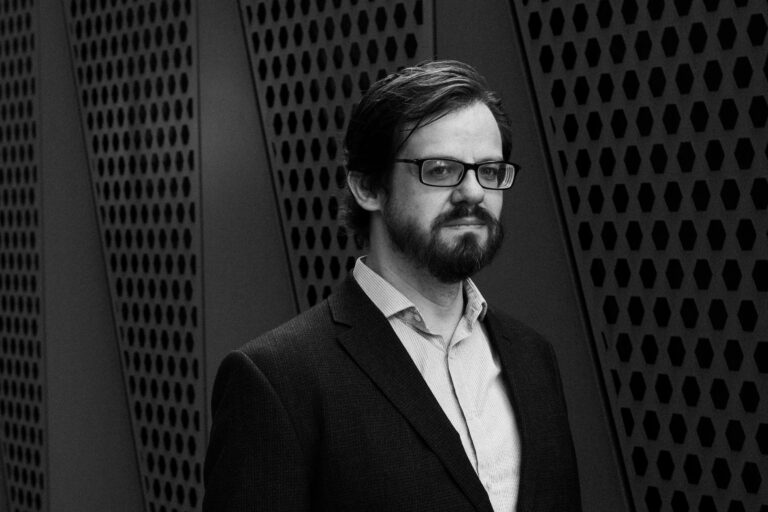Web development and digital marketing agency Fablr is used to their whole team working from home, being split down the middle between Leeds and Manchester.
Philip Bennison, Technical Director, explains the methods his company has struck upon to ensure home working is productive, successful and positive – so we can implement the same recommendations for the lockdown period.
I used to hate working from home.
Working in the office was much more productive for me. It made all the difference being surrounded by like-minded people. It meant being able to bounce ideas off my peers, having someone to share lunch with, and having someone to vent to when everything got a bit much. All of these things were an essential part of my work life.
Of course, even then I spent most of my time with my headphones on, ignoring the rest of the room. But the fact there were people around me was a significant boon – one I didn’t really appreciate until I was forced to work from home.
Back in 2016, Geoff Bretherick and I set up a boutique digital agency named Fablr, after working as designer and developer (respectively) for a slew of agencies and client-side organisations over the past couple of decades.
The only minor issue was that Geoff lived in Manchester and I was based in Leeds – far enough apart that commuting was not really something either of us wanted to do. It meant having a central office wasn’t really appropriate, and we decided that working from home was the best bet.
I admit that I struggled with this. For someone who was (and is) a proud introvert, I was having a surprisingly difficult time working from home. Getting in the right headspace proved to be a challenge and I found myself flitting around getting next to nothing done. Over the weeks my productivity slumped until one day I realised that the key thing I was missing was a sense of being part of a team.
Human beings are hardwired to work better in packs. We work best when we work together to achieve goals, and this fact hasn’t changed much over the millennia. Following this realisation I started prioritising the development of the Fablr team – even if we were spread out over the North of England. Several years have passed since this epiphany, and while Fablr may still be small, we are a very close-knit team.
Of course, we didn’t figure out the best ways to work as a team overnight. It took time and experimenting with different tools and ways of working. We now have two extra members of staff, and it’s more important than ever for us to make everyone feel part of the team.
Let me share some of the most important lessons we’ve learned about remote team development.
Regular remote meetings
It’s important to check in with each other regularly. Here at Fablr, we chat every morning. It’s a chance to see how people’s days are going and to make sure everyone is in a good place.
We also have informal “lunch dates” on Zoom or Google Meet where we get together every Friday to eat lunch.
If you can, turn your video on. Body language and facial expressions are an incredibly important part of communication and making a real connection with your teammates.
Having regular video meetings means you can chat through any work issues or blockers that have been getting in the way of your work. Having a sympathetic colleague to talk things through with is almost always the best way to find a solution to any problems you’re having.
Good project management tools
Even under the best circumstances, it’s super important to have a good project management system – whether it’s Trello, Jira, Click-Up or Monday, it’s always useful to know what needs doing and when.
It’s all too easy to feel disconnected when you’re working from home, and having a way to list tasks and indicate priorities is one of the few things that keeps us on mission. It also lets your colleagues see what tasks are still outstanding, and helps you identify where other people might need support – sometimes even before they realise it themselves.
Never underestimate the importance of good project management and a great suite of PM tools to help facilitate good teamwork.
Tracking time
We very quickly discovered that time tracking was a hugely important part of working effectively as a team. Despite planning out client time, we all know how easily this goes to pot over the course of a project. This is even more of an issue when you are working alone.
We use Click-Up for our time tracking, which allows us to keep track of what we are working on, spot any potential issues in advance, and manage people’s workload so that we’re all happy and healthy.
Work/life balance
Lastly, and perhaps most importantly, we have found that in order to focus properly when we’re working, we need to have a proper work area set up.
When I’m in my work space, I am at work – my state of mind is dedicated to getting work done. By being fully present during work hours, I can contribute to the overall team effort.
As a counterpoint, when I’m not in my work area it means I am at home (that is, not working!). After all, part of being in a functional team environment is being able to leave it from time to time and get some peace and quiet.
For those who have never worked from home for a long period of time, this might not seem so important at first. But when you live and work in the same space, you realise that one or the other starts to take priority.
While this is shaping up to be quite an unusual time for everyone, here at Fablr we realise how lucky we are to still be working as a team and with some really great clients.
Moving to a home-based work situation can be tough when you’re used to working in close proximity, but it just takes a bit of extra planning to make sure you’re all still working as a team despite the social isolation.











